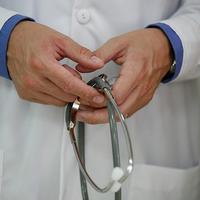
Jan 15, 2013
We turn to doctors to save our lives -- to heal us, repair us, and keep us healthy. But when it comes to the critical question of what to do when death is at hand, there seems to be a gap between what we want doctors to do for us, and what doctors want done for themselves.
Producer Sean Cole introduces us to Joseph Gallo, a doctor and professor at Johns Hopkins University who discovered something striking about what doctors were not willing to do to save their own lives. As part of the decades-long Johns Hopkins Precursors Study, Gallo found himself asking the study's aging doctor-subjects questions about death. Their answers, it turns out, don't sync up with the answers most of us give.
Ken Murray, a doctor who's written several articles about how doctors think about death, explains that there's a huge gap between what patients expect from life-saving interventions (such as CPR, ventilation, and feeding tubes), and what doctors think of these very same procedures.
Jad attempts to bridge the gap with a difficult conversation -- he asks his father, a doctor, why he's made the decisions he has about his own end-of-life care... and whether it was different when he had to answer the same questions for his father and mother.
A chart of doctor responses from the Precursors Study:

Preferences of physician-participants for treatment given a scenario of irreversible brain injury without terminal illness. Percentage of physicians shown on the vertical axis. For cardiopulmonary resuscitation (CPR), surgery, and invasive diagnostic testing, no choice for a trial of treatment was given. Data from the Johns Hopkins Precursors Study, 1998. Courtesy of Joseph Gallo, "Life-Sustaining Treatments: What Do Physicians Want and Do They Express Their Wishes to Others?"